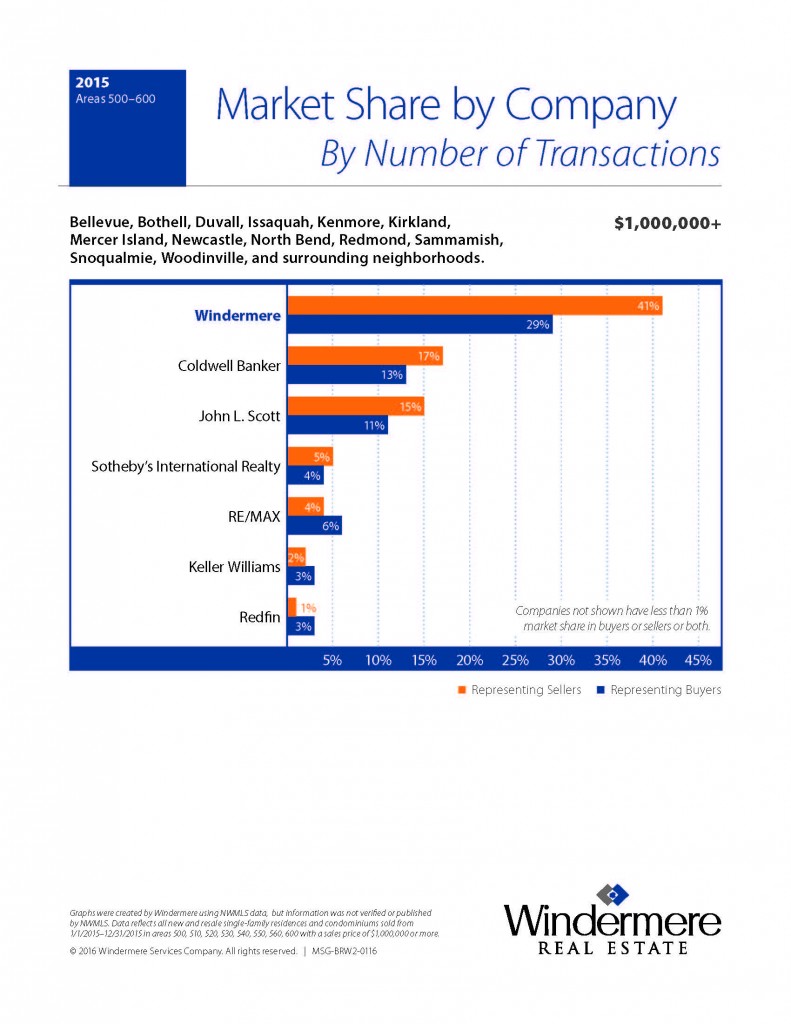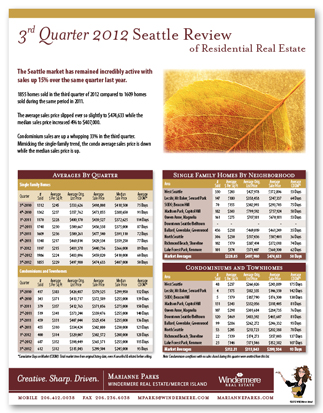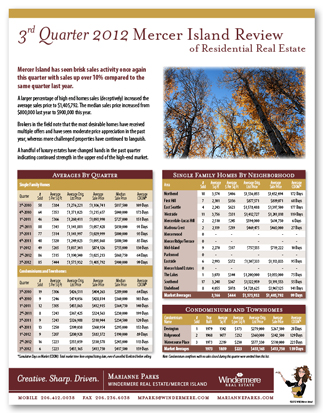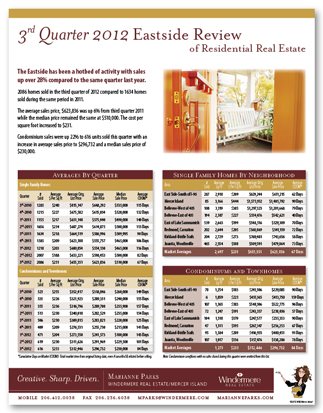Baby Boomers: Impact on the U.S. Housing Market
Originally posted on Windermere Blog.
75 million Baby Boomers control nearly 80% of all U.S. wealth, and as this generation ages, retires, and inevitably downsizes, they will have a significant impact on the housing market. Windermere’s Chief Economist, Matthew Gardner, explains when we can expect to see Boomers start to sell, opening much-needed inventory and making home ownership available to younger generations.
Making sense out of the market
 With the continued low inventory around Seattle and the Greater Eastside, how do our regional housing sales continue to grow? In his recently released 3rd quarter report, Windermere Real Estate’s chief economist, Matthew Gardner, pointed out that there has been an uptick in the number of 1st time home buyers purchasing homes. Svenja Gudell, Zillow’s chief economist, stated in her 3rd quarter report that during 2016 almost half of all U.S. buyers were first time home buyers.
With the continued low inventory around Seattle and the Greater Eastside, how do our regional housing sales continue to grow? In his recently released 3rd quarter report, Windermere Real Estate’s chief economist, Matthew Gardner, pointed out that there has been an uptick in the number of 1st time home buyers purchasing homes. Svenja Gudell, Zillow’s chief economist, stated in her 3rd quarter report that during 2016 almost half of all U.S. buyers were first time home buyers.
However, we’re also seeing the prices of starter homes skyrocket in our area. The recently released S&P Case-Shiller Home Price Index pinpointed that the Seattle area has the 2nd fastest-rising home prices in the nation. In fact, since 2012 the starter home prices have jumped 75% compared the overall housing market increases at 59% for the same time period. Millennial home buyers are ready to purchase their first homes, but starter homes are not what they used to be.
Additionally, homes in the luxury price points are seeing a slowing in their price gain in our region. According to the Case-Shiller Home Price Index report Seattle area luxury homes had a price gain of 10.9%, compared to the least expensive homes that experienced a 12.9% gain during the same report time period.
With so many differing factors working to shape our regional housing market conditions, it can be confusing to keep track of what is going on in your neighborhood, or how to make comparisons between communities that you may want to call home. I work diligently to maintain a pulse on the workings of our real estate market, to be an educated resource for you to utilize. Please give me a call with any questions you may have regarding home pricing, real estate investment, or making your first home purchase.
What We Know (and Don’t Know) About the Impact of Brexit
This blog post authored by Matthew Gardner originally appears on Windermere Blog on June 27, 2016.
The decision of the British public to leave the European Union is a historic one for many reasons, not least of which was the almost uniform belief that there was absolutely no way that the public would vote to dissolve a partnership that had been in existence since the UK became a member nation back in 1973. However, rightly or not, the people decided that it was time to leave.
As both an economist, and native of the UK, I’ve been bombarded with questions from people about what impact Brexit will have on the global economy and U.S. housing market. I’ll start with the economy.
Since last Thursday’s announcement, there have been exceptional ripples around the global economy that were felt here in the U.S. too. This isn’t all that surprising given that the vast majority of us believed that the UK would vote to remain in the EU; however, I believe things will start to settle down as soon as the smoke clears. The only problem is that the smoke remains remarkably dense.
The British government does not appear to be in any hurry to invoke Article 50 of the Lisbon Treaty, which allows a member country to leave the conglomerate. Additionally, nobody appears able to provide any definitive data as to what the effect of the UK leaving will really have on the European or global economies.
As a result, you have those who suggest that it will lead to a “modest” recession in the UK, as well as extremists who are forecasting a return of the 4-horsemen of the apocalypse. But in reality, no one really knows, and it is that type of uncertainty that feeds on itself and can cause wild fluctuations in the market.
It’s important to understand that last Thursday’s vote does not confirm an actual exit from the European Union. There is a prolonged process of leaving that is set out in the EU Treaty which requires a “cooling off” period. And during this time, even confident political leaders, such as Boris Johnson who championed the exit campaign, might be tempted by reforms that would see Great Britain actually remaining in the EU.
The EU itself has been shaken by the vote, and there are already signs that many of its leaders are talking about moving away from the Federal structure of the Union in favor of a looser, intergovernmental agreement, that would allow greater sovereignty for its member states.
This is clearly an obvious attempt to accommodate what is already a groundswell of opposition to the Union that is much wider than just Britain, and now includes France, Spain, Greece and Portugal, all of whom are considering their own exits.
So what does this mean for the U.S.?
As far as any direct impact of the Brexit on the U.S. economy is concerned, I foresee a continued period of volatility given the aforementioned uncertainty. That said, any predictable effects on the U.S. will be limited to a “headwind” to growth, but not enough to drive us into a recession. Our financial system is solid and U.S. exposure to European debt is still limited. I wouldn’t be surprised to see a slowdown in U.S. exports as the dollar continues to gain strength against European currencies, but those effects will be fairly modest.
As for the impact on housing, U.S. real estate markets could actually benefit. Uncertain economic times almost always lead to a “flight to safety”, which means global capital could pour into the United States bond market at an aggressive rate. With this capital injection, the interest rate on bonds would be driven down, resulting in a drop on mortgage rates. And a drop in mortgage rates makes it cheaper to borrow money to buy a home.
On the flip side, one thing that concerns me about lower interest rates is that it could draw more buyers into the market, compounding already competitive conditions, and driving up home prices. And housing affordability would inevitably take yet another hit.
Let’s not fool ourselves; what we’re seeing is a divorce between the UK and a majority of Europe. And like most divorces, there are no good decisions that will make everybody happy. We need to be prepared for the fact that it is going to be a very ugly, nasty, brutal, lawyer-riddled, expensive divorce.
My biggest concern for the U.S. is that the Federal Reserve must now pause in its desire to raise interest rates (I now believe that we will not see another increase this year as a result of Brexit). This is troubling because we need to normalize rates in preparation for a recession that is surely on the way in the next couple of years. The longer we put that off, the less prepared we will be when our economy eventually turns down.
 Matthew Gardner is the Chief Economist for Windermere Real Estate, specializing in residential market analysis, commercial/industrial market analysis, financial analysis, and land use and regional economics. He is the former Principal of Gardner Economics, and has over 25 years of professional experience both in the U.S. and U.K.
Matthew Gardner is the Chief Economist for Windermere Real Estate, specializing in residential market analysis, commercial/industrial market analysis, financial analysis, and land use and regional economics. He is the former Principal of Gardner Economics, and has over 25 years of professional experience both in the U.S. and U.K.
Historically low inventory levels, how we got here, & what to expect in the coming year [Video]
Originally posted on Windermere Blog
The housing market is performing remarkably well, with the exception of incredibly low inventory levels in many areas throughout the country. Why is this happening? Windermere’s Chief Economist, Matthew Gardner, explains why and offers his predictions for what we can expect in the future.
For 2015: Windermere’s Market Share
During 2015, Windermere Real Estate came out on top representing both sellers and buyers on Mercer Island. 37% of the sellers on the island opted to work with a Windermere agent last year, while 27% of those who bought island homes worked with Windermere brokers. The median sale price for a single-family home on Mercer Island during 2015 was $1,199,500, which is on the cusp of the luxury real estate market in the Puget Sound Region.
In Seattle, Windermere Real Estate had a significant share in representing buyers and sellers in the $1M+ price range during 2015. 44% of the Seattle metro sellers in this price point opted to work with a Windermere broker, while 35% of buyers who purchased a home for $1million plus used a Windermere agent. Windermere’s share of the market was 20-30% higher than other real estate companies in Seattle for the same year.
At the $1million+ price point, Windermere Real Estate represented the most sellers and buyers on the Eastside on Lake Washington during 2015. 41% of sellers, and 29% of buyers, who conducted transactions of $1million+ used Windermere agents. The Eastside cities included in this market share report include Bellevue, Bothell, Duvall, Issaquah, Kenmore, Kirkland, Mercer Island, Newcastle, North Bend, Redmond, Sammamish, Snoqualmie, Woodinville, and surrounding neighborhoods.
3rd Quarter 2012: Reviews for Seattle, Mercer Island & the Eastside
The Seattle market has remained incredibly active with sales up 15% over the same quarter last year—1855 homes sold in the third quarter of 2012 compared to 1609 homes sold during the same period in 2011. The average sales price slipped ever so slightly to $474,633 while the median sales price increased 4% to $407,000.
Condominium sales are up a whopping 33% in the third quarter. Mimicking the single-family trend, the condo average sales price is down while the median sales price is up.
Click here for the full report and to see how prices have changed in your neighborhood!
Mercer Island has seen brisk sales activity once again this quarter with sales up over 10% compared to the same quarter last year. A larger percentage of high end homes sales (deceptively) increased the average sales price to $1,405,792. The median sales price increased from $800,000 last year to $900,000 this year.
Brokers in the field note that the most desirable homes have received multiple offers and have seen moderate price appreciation in the past year, whereas more challenged properties have continued to languish. A handful of luxury estates have changed hands in the past quarter indicating continued strength in the upper end of the high-end market.
Click here for the full report and neighborhood-by-neighborhood statistics!
The Eastside has been a hotbed of activity with sales up over 28% compared to the same quarter last year—2086 homes sold in the third quarter of 2012 compared to 1634 homes sold during the same period in 2011. The average sales price, $623,836 was up 6% from third quarter 2011 while the median price remained the same at $510,000. The cost per square foot increased to $231.
Condominium sales were up 22% to 616 units sold this quarter with an increase in average sales price to $296,732 and a median sales price of $230,000.
Click here for the full report and to see how prices fared in your neighborhood!
© Copyright 2012, Windermere Real Estate/Mercer Island. Statistics provided by the Northwest Multiple Listing service and deemed accurate but not guaranteed.

 Facebook
Facebook
 Twitter
Twitter
 Pinterest
Pinterest
 Copy Link
Copy Link







